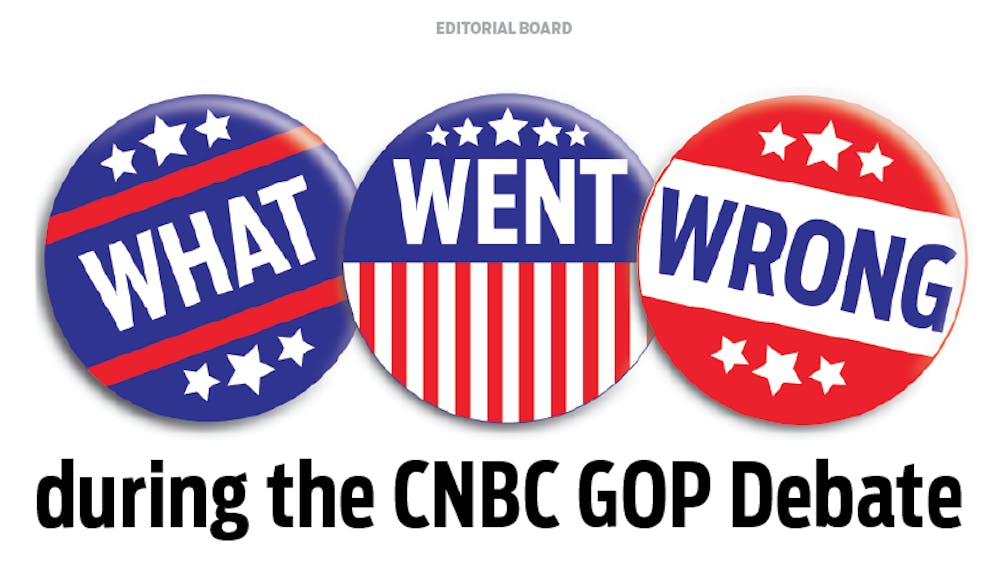Moderators can't take the heat
The third GOP debate on Oct. 28, 2015, at the University of Colorado, in Boulder resembled more of a free-for-all than a substantive debate between candidates vying for leadership of our country.
The debate moderators from CNBC, the cable network played host to the debate, asked the candidates several questions without much rhyme or reason. At one point, a question over the regulation of fantasy football was lobbed, leading to derision from New Jersey Gov. Chris Christie.
Future debate moderators, take note: when having a presidential debate with real consequences for voters, do some background research and ask relevant questions for each of the candidates. One moderator asked Donald Trump about a comment he made that Marco Rubio was “Mark Zuckerburg’s personal senator,” for which he denied. The moderator could not recall where they had gotten the information. Turns out it was on Trump’s own website, according to PBS. So be aware, moderators, and make sure you have your ducks in a row before going on stage with politicians that lie through their teeth.
Students weren't represented
The Republican National Committee did an outstanding job in one aspect of the debate — limiting access to students of the university.
Only 150 tickets were given to the University of Colorado for both students and faculty to attend the debate, according to the school’s website. Faculty could select a grand total of four students each to come with them to the debate.
With voter turnout notoriously low among younger voters, the RNC missed an excellent opportunity to get younger citizens interested in the political process. They might regret the decision on Election Day.
Facts aren't required, right?
Debates give candidates a good chance to introduce themselves to voters. However, they often present blatantly false information to support their own viewpoints.
In one heated exchange, when former Florida Gov. Jeb Bush claimed that Sen. Marco Rubio, R.-Fla., was missing Senate votes to run for president, Rubio defended himself by saying President Obama had missed 60 to 70 percent of his votes when he was a senator running for president.
According to PBS, Obama was absent for 29 percent of his votes during most of the 2008 campaign season. The attack from Bush, and Rubio’s false claim about Obama’s Senate record made Rubio look like a better candidate and made him the shining debate winner in the aftermath.
And let’s not forget Carly Fiorina’s startlingly wrong fact she spewed at the debate that 92 percent of the jobs lost during Barack Obama’s first term belonged to women. According to CNN, more women entered the workforce and were working at the end of Obama’s first term in office than when he first became president. Though several news outlets have called her out on this wrong fact she pulled from Mitt Romney’s campaign in 2012, she continues to repeat it and claim she’s “not using wrong data.”






